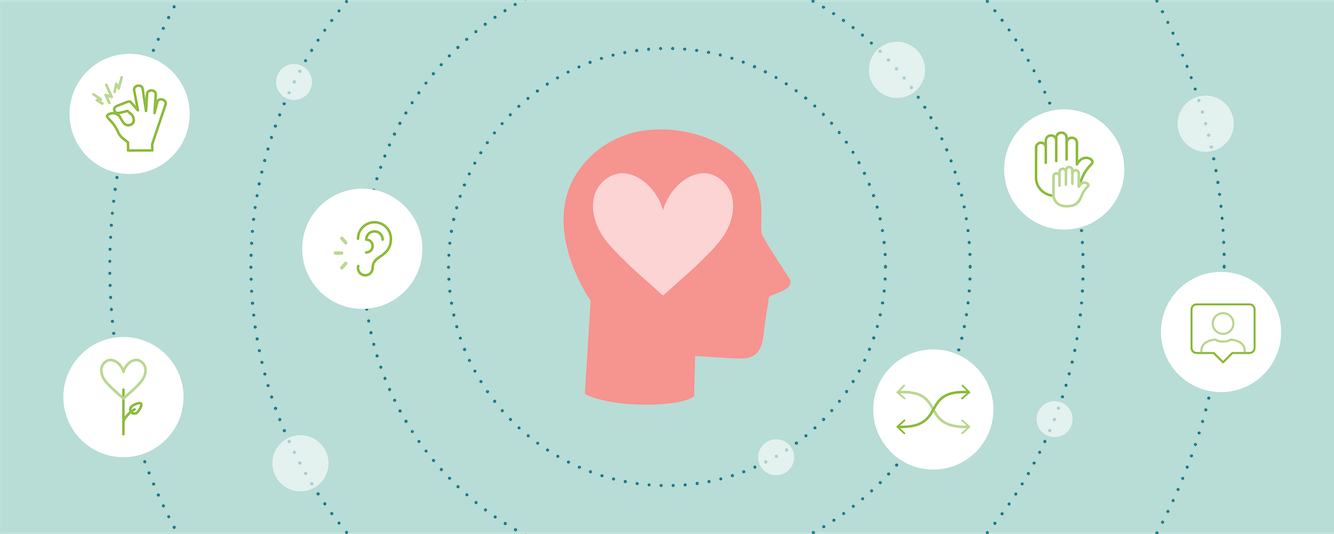Now is the time to shift from transactional interactions to empathetic experiences that earn loyalty
By Jack Kelly for forbes.com

It took a global pandemic for many business leaders to wake up and recognize the need to treat their workers with empathy, respect and dignity. Up until recently, it was accepted practices for CEOs, executives and middle managers to rule with an iron fist.
Workers were paid to do their jobs, and that’s it. There weren't any open and honest conversations held about the mental health and well-being of their employees. The old-school mindset was that if you showed some compassion, it's a sign of weakness.
Progressive CEOs, like Tony Bates, CEO of tech company Genesys, former head of Skype and GoPro and current board member of eBay and VMware, exemplifies the new breed of empathetic leaders. Empathy is the concept of not only walking in someone else's shoes, but also understanding what they are going through and taking action.
Leaders of the most successful companies in this new fast-growing digital economy recognize empathy is not just a buzzword—it’s a proven business strategy that can save corporate culture, while also driving KPIs, as shown in a recent study from the Harvard Business Review that found loyalty leaders grow revenue 2.5X, compared to their peers.
Now is the time to shift from transactional interactions to empathetic experiences that earn customer loyalty. Companies need to manage their businesses from the vantage point of two mission critical assets of their business—the employees and their customers—putting empathy into action, resulting in becoming highly successful.
Bates also leads by example in his personal life. Along with his wife, Bates compassionately works with the Child Mind Institute, a nonprofit dedicated to children struggling with mental health and providing working parents with the tools needed to spot depression in children.
Bates and the Child Mind Institute launched a program centered on balancing child care, work and self-care, coping with fatigue, sadness, isolation, noticing signs of stress in kids and when to worry and parenting kids with ADHD, special needs or depression.
Bates is also on a mission to break down the stigma of mental health by putting company initiatives and policies in place at Genesys that provide resources for its 6,000 employees, particularly working parents, in this age of pandemic parenting.
Technology advancements have greatly improved our lives. There are some downsides too. Without considering the consequences, many businesses deploy artificial intelligence, apps, platforms, software and systems that are at times frustratingly hard to navigate and alienate customers. It's important to thoughtfully consider the experience of clients, consumers and workers. To this end, Genesys, the global leader in cloud customer experience and contact center solutions, gauged the sentiments of 5,000 adults across the world about their customer service experiences.
Here are the highlights of the study:
- While a majority (71%) believe that customer service has become more personalized in the last five years through the use of technology, nearly half (48%) still note a distinct lack of compassion in their treatment.
- Just 21% say their customer service experiences have become "much more" personalized. Fully half of those surveyed (50%) say their experiences are only "somewhat more" personalized, leaving a lot of room for improvement.
- When contacting a company to resolve a support issue, just over half (52%) of survey respondents feel they're shown empathy when they need help. What's worse, participants sense this lack of commiseration from companies with which they regularly do business.
- Younger consumers especially recognize the benefits of personalization. They know what they want, how they want it and when and are more willing to share personal details to get it. A full three-quarters of Millennials (76%) and Gen-Zers (76%) in the survey say customer service experiences have become more personalized in the last five years, compared to 69% of Gen-Xers and 66% of Boomers.
- Consumers of varying ages expect different levels of empathy, with older generations wanting more understanding from organizations. While most Gen-Zers (63%) believe businesses work to resolve issues with empathy, only half of Gen-Xers (50%) and even fewer Boomers (47%) feel the same.
- Perhaps because they're more accustomed to exercising patience, parents seem a bit more likely to hear empathy from customer service representatives. More than three in five parents (61%) say companies show empathy when resolving an issue, significantly more than their child-free peers (48%).
- The Genesys survey data also shows that the degree to which consumers recognize personalized service varies depending on where they live. While consumers in Germany (77%) and the U.K. (75%) are the most likely to say that customer service has become more personalized in the past five years, a full third of those in Japan (34%) and New Zealand (33%) think service has become less personalized.
- U.S. respondents were the most likely to say they experience empathy from their service providers (58%). It's the reverse in Germany (47%) and Japan (40%), where less than half said the businesses they deal with feel their pain.
- Rather surprisingly, city dwellers (58%) are considerably more satisfied with the level of empathy they receive than participants in the suburbs and rural areas (both at 49%). Perhaps, the pace of city life leaves less time for pleasantries, so the empathy bar is lower?
- Similar to the global results, 70% of U.S. respondents believe customer service has become more personalized in the last five years. However, 29% see a "much more" personalized experience, versus the 41% who notice "somewhat more" personalization.
- Of the rural U.S. participants, 62% notice increased personalization through technology compared to 71% in suburban and 74% in urban areas.
- Older folks expect more understanding from the companies with whom they do business. When it comes to gauging empathy, Gen-Xers (63%), Millennials (62%) and Gen-Zers (61%) are similar in their outlook, while Boomers at 51% drag down the U.S. average.
- Two-thirds of U.S. survey participants who have children (67%) see companies as empathetic, compared to just 54% of singletons.
Merijn te Booij, GM and EVP of the Genesys Employee Engagement solutions business unit, said about the findings, "Businesses that recognize the inextricable link between empathy and truly personalized experiences hold the key to establishing customer trust and long-term loyalty—especially as we navigate the longer-term impacts of Covid-19."
To learn more about empathy in the workplace, Bates co-authored the book, Empathy In Action.















